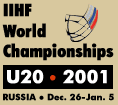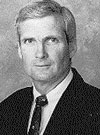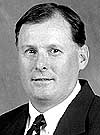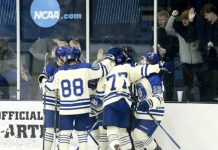Last column, we discussed the classic 1997 Michigan-BU semifinal, and fawned over how many future NHL players were in that game. With close to 1,000 NHL games recorded by players who participated in that matchup, it’s an average of over 300 per year.
We then started looking for other Frozen Four games where the combatants had better totals, and found the 1991 BU-Northern Michigan final. A silly computational error subtracted 1,000 games from the total, yet still beat the 1997 contest in average NHL games played per season. The correct total should have been 4,071, for an average of 452 games over nine years.
However, thanks to a number of dedicated readers also with too much time on their hands, a new champion has been discovered: The 1982 NCAA Final between North Dakota and Wisconsin.
This game featured a mind-blowing 20 future NHL players, totalling 9,565 games over 18 years. That’s an average of 531.5 NHL games played per year, with Chris Chelios and James Patrick still playing.
Here’s the breakdown: North Dakota (5,776): Craig Ludwig (1,256); Patrick (1,064), Troy Murray (914), Dave Tippett (721), Rick Zombo (652), Phil Sykes (456), Jon Casey (425), Dave Donnelly (137), Gord Sherven (97), Darren Jensen (30), Jim Archibald (16) and Dan Brennan (8). Wisconsin (3,789): Chelios (1,170), Bruce Driver (922), Brian Mullen (832), Patrick Flatley (780), Marc Behrend (38), John Newberry (22), Phil Houck (16), John Johannson (5) and Terry Kleisinger (4).
Wow!
Bergene writes, “For my money, that year was the all-time high in talent for college hockey, in the West at least, and the NHL stats would seem to bear that out. … The average games per year of 531 would be higher if we measured just the first 10 year or 12 years, which is a more typical pro career than 18 years.”
Which brings up a good point. Somewhere along the line, on both ends of the spectrum, this average games per year figure may not be a reliable barometer. What we now need is some sort of statistics major to do, like, a regression analysis, or something.
Hvinden, a North Dakota supporter, writes, “In addition to being a game full of future pros, this was one of my early favorite games. I remember watching the game on ESPN as an eight year old. [In] 1982, North Dakota and Wisconsin is the rivalry. The schools are in the third year of a four-year run where they will trade off NCAA titles. Fights of this era are legendary. One of the future pros listed is Jim Archibald, UND and WCHA career penalty minute leader (540).”
Which also may be the NCAA mark, though those kinds of records are incomplete.
By the way, another candidate — mentioned by reader Steve Gruhn — was the 1985 semifinal between RPI and Minnesota-Duluth, with players like Brett Hull, Norm Maciver, Adam Oates and Darren Puppa. That game totalled 4,463 NHL games over 12 players in 15 years, or 297.5 per year.
Did we mention Jim Archibald?
Have you seen the kind of penalty minute numbers being put up by Western Michigan’s Brian Pasko? The freshman defenseman has apparently not been reminded that he went to college, not juniors.
— WMU coach Jim Culhane on defenseman Brian Pasko
In a recent game against Merrimack, Pasko put up 30 penalty minutes on the same play. A misconduct a weekend seems pretty regular for him.
Pasko’s penalty minutes are now approaching 130. As a matter of comparison, those pacifists at Alaska-Anchorage have 212 PIMs as a team through 18 games.
Western Michigan coach Jim Culhane, certainly no choir boy in his day, has nonetheless been trying to control Pasko.
“We love his passion for the game, and his willingness to compete is what excited us,” Culhane says.
Pasko has only been playing organized hockey for four years, three of them in the Jr. A NAHL with the Chicago Freeze. Therefore, he’s only known the junior style of play.
“It’s an education process,” says Culhane. “In junior hockey, you can drop the gloves. He’s learning what the college game is all about. There’s going to be some bumps along the way.”
No good records exists on the all-time single season, or career, NCAA mark for penalty minutes. But, as mentioned earlier, Archibald has to be a candidate. His single-season high was 197 in 1984-85. And, according to WCHA media relations director Doug Spencer, statistics at that time did not include game misconducts as 10 penalty minutes.
In 1992-93, Ohio State’s Craig Patterson had 164 minutes in league games alone.
So, it appears Pasko has a long way to go. But, my guess is Culhane reels him in long before then.
To Russia With Glove
Another exciting World Junior tournament has come and gone, and not even a yawn is heard below the 49th Paralell.

Americans are missing good hockey.
The United States had a solid 3-1 record in Group play at this year’s tournament in Moscow, losing only to the Czech Republic. Unfortunately, as the No. 2 seed, the U.S. was matched up against Canada, which was third in Group B. Again, the Canadians stymied the U.S., winning 2-1 in the quarterfinals despite getting off only 15 shots on net.
So, another year without a medal for the Americans, but they had a respectable tournament nonetheless under new head coach Keith Allain, a former goalie at Yale. Some players that stood out were Michigan’s Andy Hilbert, RPI’s Marc Cavosie and Providence’s Jonathan DiSalvatore.
Yale coach Tim Taylor, who Allain once played under, was an assistant with the U.S. team this time around. He thought, despite the disappointment of not winning a medal, Team USA did extremely well.

“We had an outstanding tournament,” Taylor says. “We were 1-1 with Canada and lost on a late power-play goal, we were 1-1 with the Czechs and lost on a 5-on-3 goal.
“[Keith] had the kids prepared with the frustrations of this kind of event. We didn’t let the little things bother us. Clearly any one of six or possibly seven teams could’ve won the gold medal. It’s obviously a short-term event. You have to execute almost flawlessly at the right time. There’s no opportunity to make adjustments, you have to go with your game plan and be well prepared.”
The U.S. has been frustrated in recent years. After finishing second in 1997, the team failed to win a medal in the next three years, losing a shootout to Canada in the bronze-medal game in 2000. That ended Jeff Jackson’s four-year run as head coach of the team.
Jackson was picked to lead the U.S. National Developmental Program in 1996, a job that included coaching the World Junior team. He was let go this spring following an eighth-place finish in the World Under-18 Tournament. The coaching duties were then split, with Mike Eaves picked to run the NDP and coach the Under-18 team, Moe Mantha selected as the Under-17 team coach (which just won a gold medal), and Allain picked to coach the World Junior team.
The U.S. is still struggling with defining itself, and with the challenges inherant in the tournament.
“I think our kids are able to play up tempo, and we have the individual skils to be a strong contender every year,” Taylor says. “The challenge is to match the strong collective game our opponents [have]. You have to build a team for international play capable of collective play. It’s the trouble the Russian team had this year.”
One of the criticisms Jackson faced was that, by being in charge of the National Development Program, he tended to overlook non-NDP players when it came time to picking the World Junior team.
“Clearly because of international experience and the preparation that the national program provides, a lot of these kids were very well prepared mentally and physically for the World Junior tournament,” says Taylor, “but also, arguably, our steadiest defenseman and top forward weren’t involved in the program. It’s still a matter of putting a team together. Not all of our players go to Ann Arbor for whatever reason, and we still have to use our whole pool.
“There was a familiarity Jeff had because he had a lot of the kids all year, but there’s also fresh perspective that Keith had this time. So each way can be good.”
Taylor was clearly proud of the job his former pupil, Allain, did in the few weeks he had the group together.
“To win final the final two games without being in medal contention, those are games when discipline and morale are eroded,” Taylor says. “Keith didn’t let that happen.
“I was very, very proud of him. He did a marvelous job pushing the right buttons. There’s not a kid who I think will say they didn’t have a positive experience. They were proud to play hard for their country.”
Away for the Holidays
Also coming and going were those holiday tournaments. Fun, as usual, even if they don’t really mean much beyond bragging rights. But, it’s good to get those non-conference games in so teams can measure up where they stand nationally.
Michigan was missing some top players to the World Junior tournament, but I still don’t think anyone expected the Wolverines to get spanked by Michigan Tech.
Tech then went out and pushed Michigan State to the limit, before the top-ranked Spartans won in overtime.
Are there any more doubters to how much coaching means in collegiate athletics? Mike Sertich has completely changed the attitude around at Tech in one month.
Minnesota and Wisconsin both won the tournaments they host every year, which happens less frequently in recent years than you might think.
And Vermont put up a pair of impressive wins at the Dartmouth-hosted Auld Lang Syne Tournament. The Catamounts are now 9-5-1, including 5-1-1 in the ECAC.
For whatever you think about Vermont and its recent troubles — and this column was certainly critical of the administration’s handling of the hazing situation — you have to love what coach Mike Gilligan and the team itself are doing. And the fans, among the best and loudest in college hockey, acted admirably through it all, not making excuses for what happened, but sticking by their team nonetheless.
I’ve never missed an opportunity to go to Gutterson Fieldhouse, especially during the St. Louis-Perrin era, two players that remain as my all-time favorite players to watch.
The only thing inexplicable about Vermont’s season so far is those two losses at home during the Thanksgiving tournament against Minnesota-Duluth and MSU-Mankato. At the time, you wondered if the Catamounts’ league record was a mirage. At what point now do we just say that weekend was an abberation?
I’d suspect there are still many who need to be convinced. The beauty of it is, we’ll find out.
Canisius
I wish more could be known about the Canisius situation, and last month’s suspension of coach Brian Cavanaugh for hitting a player. But, everyone has been incredibly tight-lipped about it.

All we know is, Cavanaugh admits to hitting freshman defenseman Matt Coulter on the head with a stick during practice. He says it was a light tap to get his attention. The kid’s father says he nailed him pretty good, causing a concussion. The administration suspended Cavanaugh, and he apologized. The school won’t talk now, shielding themselves being the privacy rights of students.
Some can insinuate that this is a “Bobby Knight thing.” Others can claim this another case of an overzealous parent causing a problem where none existed. I can say which way I lean, but I can’t really know. If we weren’t there, do we really know what happened?
What we do know is, Cavanaugh, unlike Knight, has no history of this kind of thing. We also know that Coulter’s father has zero evidence of a concussion, despite his claims that the player was checked out by two school doctors (the school’s training staff said they were told not to comment).
And, right now, no one knows Coulter’s status. He was the only player not to go on the team’s trip to Huntsville, Ala. for the team’s holiday tournament there. But, technically, he’s still on the team.
We suspect some sort of haggling with the kid’s father may be going on behind the scenes.
As usual, all any of this is doing is hurting the kid.
Things that Make You Go Hmmm…
Then you have this other coaching controversey. Wisconsin-Eau Claire was down 9-1 in a game against Augsburg. The Blugolds’ coach, Marlin Muylaert, felt his team was getting the short end of things from the officials all night in a particularly chippy game. UWEC was called for over 90 minutes in penalties, while Augsburg had only 30.
Whether his beef was legitimate or not, is irrelevant to what followed.
Muylaert pulled his goalie, allowing Augsburg to score two goals. The 11-1 score caused the MIAC’s 10-goal rule to kick in, which sends the game to running time. Muylaert then pulled his team from the ice, forcing the officials to call delay of game penalties. Eventually, with the clock still ticking, the game was officially forfeited to Augsburg.
Eau Claire is a member of the NCHA, but that league shares officials with the MIAC.
Various hockey people expressed their outrage at Muylaert’s actions, accusing him of making a mockery of the game and showing no class. Muylaert said he knew there would be repurcussions from what he did, but he believed he did what he had to do.
Muylaert was suspended.
The situation really speaks for itself, and so not much else has to be said. But, this also brought to light the MIAC’s 10-goal, running time rule. It’s only been used in a handful of MIAC games over the years, and not many people outside of the league knew it even existed.
A lot of people were just as shocked and appalled at this, as anything else.
For sure, it is pretty silly. In organized NCAA athletics, to have a mercy rule, seems pretty odd to me, more than anything. But I’m not sure if I’d go so far as to be appalled by it, or even upset.
Heck, I’ve been at many games where I was praying for running time.
And really, is it any more preposterous than playing 4-on-4 in overtime, and awarding one point to the loser. Or shootouts. Arbitrary rule tinkering like that raises my ire a lot more than running time.
Oh, baby!
This past summer, my wife and I bought our first house. We also had our first child. Nearly seven months later, the jury is still out on which gives me more angst and pleasure. Let’s break it down:
The house gets soiled, you clean it. The baby get soiled, it really stinks, and then you clean it.
EDGE: House
When I come home, the baby meets me with a smile that can make you cry. The house greets me with a pile of bills in the mailbox that make me cry.
EDGE: Baby
The house has a 30-year mortgage, but most people only stay for seven years before going through it again. The baby is your responsibility for at least 18 years, assuming it doesn’t run away from home. Of course, you are likely to have more than one at a time.
EDGE: Even
One day, I’ll teach the kid to play hockey. But, his mother will tell us not to play in the house.
EDGE: Baby
About 14 trips to Home Depot, and I still need some more paint, a couple caulking guns, one of those stud finder gizmos, and I think some ball bearings. Meanwhile, 27 trips to the grocery store for diapers, baby food, ora-jel, some sort of lotion and some gauze pads. Neither one really ever ends.
EDGE: Even
Every now and then, that back door creeks and slams when the wind blows. Babies cry.
EDGE: House
My kid gets a virus. My house gets ants.
EDGE: Baby
One day, I hope to sell the house for a profit. … It still won’t be enough to pay for the kid’s college.
EDGE: House
Some time in the next decade, the smart home will become a reality (check out Echelon, NASDAQ: ELON … full disclosure: Yes, I own stock, thank you very much). But that day isn’t here yet. Every day, the baby learns something new. He’s utterly fascinated by it, and I’m utterly fascinated watching it.
EDGE: Baby
Final Tally: Baby, 4; House, 3; Even, 2
I guess in the end, that wonderful thing known as “raising children” is really what it’s all about, isn’t it?


